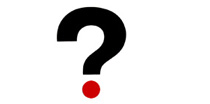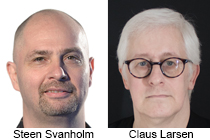Using 911facts.dk

How do you get the most out of this site?
Truth Movement
Publications
Booking

We are available for booking a lecture or a workshop here.

Analyses of conspiracy theories
Psychology Today
- Conspiracy theories are easier to maintain from a distance – Groups are more united when seen from far away
Art Markman, Psychology Today - Conspiracy Theories: Epistemology & Entertainment – Conspiracy theories offer an alternate psychology
Joachim I. Krueger, Psychology Today - Conspiracy Theorists: Is the Truth Out There? How personality predicts patterns of thought: Conspiracy Theorists
Ira Hyman, Psychology Today - Field Guide to the Conspiracy Theorist: Dark Minds
John Gartner, Ph.D., Psychology Today - Of Jock Straps and Conspiracy Theories – Lacking control increases illusory pattern perception
Matthew Hutson, Psychology Today - Paranoia and the Roots of Conspiracy Theories – September 11 and the psychological roots of conspiracy theories,
Ilan Shrira, Psychology Today - Personality and Conspiracy Theories: What Your Beliefs Say About You
Tomas Chamorro-Premuzic, Psychology Today - Why the Human Brain Is Designed to Distrust
Douglas T. Kenrick, Psychology Today
New York Times
- The Negative Social Impact of Conspiracy Theories
Karen M. Douglas, 4. januar, 2015 - The Powerless Wield No Legitimacy
Harriet A. Washington, 4. januar, 2015 - A Symptom of Mass Cultural Anxiety
Timothy Melley, 4. januar, 2015 - Conspiracy Theorists Have Suspicious, and Sometimes Paranoid Natures
Cass R. Sunstein, 4. januar, 2015 - Conspiratorial Stories Have a Rich Tradition in Story Telling
Annie Jacobsen, 4. januar, 2015 - Is It Nonfiction Disguised as a Novel?
David Baldacci, 4. januar, 2015
Other analyses
- A dualmotive model of scapegoating: Displacing blame to reduce guilt or increase control. Journal of Personality and Social Psychology, 102, 1148–1163.
Rothschild, Z. K., Landau, M. J., Sullivan, D., & Keefer, L. A. (2012) - An existential function of enemyship: Evidence that people attribute influence to personal and political enemies to compensate for threats to control. Journal of Personality and Social Psychology, 98, 434–449.
Sullivan, D., Landau, M. J., & Rothschild, Z. K. (2010) - Bad thinkers,
Quassim Cassam, Aeon.com - Belief in Conspiracy Theories.
Goertzel, Ted
Political Psychology 15: 733-744, 1994 - Belief in conspiracy theories: How uncertainty and perceived morality shape political paranoia. Unpublished manuscript, VU University Amsterdam, Amsterdam, The Netherlands.
Van Prooijen, J.-W., & Jostmann, N. B. (2010) - Belief in conspiracy theories: The role of paranormal belief, paranoid ideation and schizotypy. Personality and Individual Differences, 50, 1289–1293.
Darwin, H., Neave, N., & Holmes, J. (2011) - Belief in the Holocaust: Effects of Personality and Propaganda
Linda M. Yelland, William F. Stone, Department of Psychology, University of Maine
Political Psychology, Vol. 17, No. 3, 1996, september, 1996 - Belief in U.S. government conspiracies against blacks among black and white college students: Powerlessness or system blame? Personality and Social Psychology Bulletin, 25, 941–953.
Crocker, J., Luhtanen, R., Broadnax, S., & Blaine, B. E. (1999) - Beliefs in Conspiracies
Marina Abalakina-Paap, Walter G. Stephan, Traci Craig, W. Larry Gregory
Political Psychology, Volume 20, Issue 3, pages 637–647, September 1999
DOI: 10.1111/0162-895X.00160 - Case Closed? On the John F. Kennedy Assassination: Biased Assimilation of Evidence and Attitude Polarization
John W. McHoskey
Basic and Applied Social Psychology, Volume 17, Issue 3, 1995, pages 395-409
DOI: 10.1207/s15324834basp1703_7 - Changing Conspiracy Beliefs through Rationality and Ridiculing,
Gábor Orosz, Péter Krekó, Benedek Paskuj, István Tóth-Király, Beáta Bothe, Christine Roland-Lévy, Frontiers in Psychology - Coincidence or Conspiracy? Studies Investigate Conspiracist Thinking
Association for Psychological Science, 1. oktober 2015 - Connecting the dots: Illusory pattern perception predicts belief in conspiracies and the supernatural,
Jan-Willem van Prooijen, Karen M. Douglas, Clara De Inocencio, 2017 - Conspiracist ideation in Britain and Austria: evidence of a monological belief system and associations between individual psychological differences and real-world and fictitious conspiracy theories.
Viren Swami, Rebecca Coles, Stefan Stieger, Jakob Pietschnig, Adrian Furnham, Sherry Rehim, Martin Voracek
Department of Psychology, University of Westminster, London, UK.
Br J Psychol. 2011 Aug ;102 (3):443-63 21751999 - Conspiracy theories and conspiracy theorizing. Philosophy of the Social Sciences, 32, 131 150.
Clarke, S. (2002) - Conspiracy Theories and Conspiracy Theorizing
Steve Clarke, Charles Sturt University
Philosophy of the Social Sciences June 2002 vol. 32 no. 2 131-150
doi: 10.1177/004931032002001 - Conspiracy Theories: Causes and Cures.
Cass R. Sunstein, Adrian Vermeule
DOI: 10.1111/j.1467-9760.2008.00325.x
Journal of Political Philosophy, 15. januar, 2008 - Conspiracy theories: Public arguments as coded social critiques. A rhetorical analysis of the TWA flight 800 conspiracy theories. Argumentation and Advocacy, 39, 40–56.
Miller, S. (2002) - Conspiracy thinking in the Middle East. Political Psychology, 15, 443–459.
Zonis, M., & Joseph, C. M. (1994) - Conspiracy: How the paranoid style flourishes and where it comes from. New York: Simon & Schusters.
Pipes, D. (1997) - Danskernes tro på politiske konspirationsteorier. Om sammenhængen mellem politisk ideologi og konspirationsteorier i Danmark
Mathias Osmundsen, Michael Bang Petersen, Institut for Statskundskab, Aarhus Universitet - Dead and Alive: Beliefs in Contradictory Conspiracy Theories
Michael J. Wood, Karen M. Douglas, and Robbie M. Sutton, 2011 - Den skjulte sandhed,
Mikkel Thorup, Maria Brockhoff, Rikke Alberg Peters, 2018 - Derfor tror nogle mennesker på konspirationsteorier,
Nikolaj Krak, Kristeligt Dagblad - Does it take one to know one? Endorsement of conspiracy theories is influenced by personal willingness to conspire.
Douglas, K. M., & Sutton, R. M. (2011).
British Journal of Social Psychology, 50, 544–552. doi:10.1111/j.2044-8309.2010.02018.x, 12. april, 2011 - En ny verdensforståelse,
Katrine Ingemann Nielsen, Mikkel Mattson Green - En ud af ni danskere tror, vi bliver styret af en hemmelig elite. Hvorfor gør de det?,
Selin Türker, Zetland, 2021 - Getting by with a little help from our enemies: Collective paranoia and its role in intergroup relations. In C. Sedikides, J. Schopler, & C. A. Insko (Eds.). Intergroup cognition and intergroup behaviour (pp. 233–255). Mahwah, NJ: Lawrence Erlbaum associates.
Kramer, R. M., & Messick, D. M. (1998) - Hvor udbredt er troen på konspirationsteorier i Danmark?,
Michael Bang Petersen & Mathias Osmundsen, Arbejdspapir, Institut for Statskundskab, Aarhus Universitet - Konspirationer behersker verden,
Information - Konspirationsteorier under Covid-19-pandemien i Danmark,
Mette Bengtsson, Anna Schjøtt Hansen, Jannie Møller Hartley, Jakob Bæk Kristensen, Eva Mayerhöffer, Tim Ramsland, Center for Nyhedsforskning, Roskilde Universitet - Lacking control increases illusory pattern perception. Science, 322, 115–117.
Whitson, J. A., & Galinsky, A. D. (2008). - Making sense of life: The existential self trying to deal with personal uncertainty. Psychological Inquiry, 20, 197–217.
Van den Bos, K. (2009) - Moon Landing Faked!!!—Why People Believe in Conspiracy Theories, Scientific American, 30. april, 2013
- NASA faked the moon landing – Therefore (Climate) Science is a Hoax: An Anatomy of the Motivated Rejection of Science
Stephan Lewandowsky, University of Western Australia
Klaus Oberauer, University of Zurich and University of Western Australia
Gilles Gignac, University of Western Australia
Psychological Science, 26. marts, 2013 - Nothing Happens by Accident, or Does It? A Low Prior for Randomness Does Not Explain Belief in Conspiracy Theories
Psychological Science, 21. september 2015 - Paranoia and self-consciousness. Journal of Personality and Social Psychology, 62, 129–138.
Fenigstein, A., & Vanable, P. A. (1992) - Paranoid cognition in social systems: Thinking and acting in the shadow of doubt. Personality and Social Psychology Review, 2, 251–275.
Kramer, R. M. (1998) - Political paranoia v. political realism: On distinguishing between bogus conspiracy theories and genuine conspirational politics. Patterns of Prejudice, 41, 45–60.
Bale, J. M. (2007) - Political paranoia: The psychopolitics of hatred. New Haven, CT: Yale University Press.
Robins, R. S., & Post, J. M. (1997) - Probability and conspiratorial thinking,
Marko Kovic, Tobias Füchslin, 2018 - Right-Wing Authoritarianism And Conspiracy Thinking In A Polish Sample
Monika Grzesiak-Feldman, Monika Irzycka
University of Warsaw
Psychological Reports, Vol. 105, Iss. 2 (October 2009) - Social functionalist frameworks for judgment and choice: Intuitive politicians, theologians, and prosecutors,
Tetlock, P. E. (2002), APA PsycNet - Social Psychological Origins of Conspiracy Theories: The Case of the Jewish Conspiracy Theory in Malaysia
Viren Swami
Front Psychol. 2012; 3: 280.
PMCID: PMC3412387 - Study: Rational arguments and ridicule can both reduce belief in conspiracy theories,
Eric W. Dolan, PsyPost.com - The believing brain: From ghosts and gods to politics and conspiracies—How we construct beliefs and reinforce them as truths. New York, NY: Henry Holt.
Shermer, M. (2011) - The big cause effect: Perspective taking and consequence size shape belief in conspiracy theories. Unpublished manuscript, VU University Amsterdam, Amsterdam, the Netherlands.
Van Prooijen, J.-W., & Van Dijk, E. (2011) - The Conspiracy Theory Detector – How to tell the difference between true and false conspiracy theories,
Michael Shermer, Scientific American, 17. november, 2010 - The functional nature of conspiracy beliefs: Examining the underpinnings of belief in the Da Vinci Code conspiracy. Personality and Individual Differences, 51, 1007–1011.
Newheiser, A.-K., Farias, M., & Tausch, N. (2011) - The hidden impact of conspiracy theories: Perceived and actual influence of theories surrounding the death of princess Diana. Journal of Social Psychology, 148, 210–221
Douglas, K. M., & Sutton, R. M. (2008) - The paranoid style in American politics. In R. Hofstadter (Ed.), The paranoid style in American politics and other essays (pp. 3–40). New York, NY: Knopf.
Hofstadter, R. (1966) - The popularity of conspiracy theories of presidential assassination: A Bayesian analysis. Journal of Personality and Social Psychology, 37, 637–644.
McCauley, C., & Jacques, S. (1979) - The Psychology of Conspiracy Theories,
Karen M. Douglas, Robbie M. Sutton, Aleksandra Cichocka, 17 December 2002 - The social consequences of conspiracism: Exposure to conspiracy theories decreases intentions to engage in politics and to reduce one’s carbon footprint.
Jolley, D. & Douglas, K.M. (2013).
British Journal of Psychology. doi: 10.1111/bjop.12018, 4. januar, 2013 - Too special to be duped: Need for uniqueness motivates conspiracy beliefs,
Roland Imhoff, Pia Karoline Lamberty, European Journal of Social Psychology - Unanswered questions: A preliminary investigation of personality and individual difference predictors of 9/11 conspiracist beliefs. Applied Cognitive Psychology, 24, 749–761.
Swami, V., Chamorro-Premuzic, T., & Furnham, A. (2010) - Unanswered questions: A preliminary investigation of personality and individual difference predictors of 9/11 conspiracist beliefs
Viren Swami, Tomas Chamorro-Premuzic, Adrian Furnham
Applied Cognitive Psychology, Volume 24, Issue 6, pages 749–761, September 2010
DOI: 10.1002/acp.1583 - Uncertainty management: The influence of human uncertainty on reactions to perceived fairness. Journal of Personality and Social Psychology, 80, 931–941.
Van den Bos, K. (2001) - Understanding Conspiracy Theories,
Karen M. Douglas, Joseph E. Uscinski, Robbie M. Sutton, Aleksandra Cichocka, Turkay Nefes, Chee Siang Ang, Farzin Deravi, 2019 - “What about building 7?” A social psychological study of online discussion of 9/11 conspiracy theories
Michael J. Wood, Karen M. Douglas, 8. juli, 2013 - What Keeps Conspiracy Theories Alive?
Benjamin Radford
Discovery News, 21. juni, 2013 - When Corrections Fail: The persistence of political misperceptions
Brendan Nyhan, Jason Reifler, 2006 - When we are worried, what are we thinking? Anxiety, lack of control, and conspiracy beliefs amidst the COVID-19 pandemic,
, Jakub Šrol, Eva Ballová Mikušková, Vladimíra Cavojová, 01 Februar 2021 - Why Conspiracy Theories Provoke Violence
Benjamin Radford
Discovery News, 30. januar, 2014 - Why Rational People Buy Into Conspiracy Theories
Maggie Koerth-Baker
The New York Times, 21. maj, 2013
Foredrag
In September 2011, the British organisations Center for Inquiry and British Humanist Association held a conference on conspiracy theories.
Part 1: Chris French og Robert Brotherton, “Conspiracy Minded: The Psychology of Belief in Conspiracy Theories”
Part 2: Karen Douglas, University of Kent: “A Social Psychological Perspective On Conspiracy Theories”
Part 3: Jamie Bartlett og Carl Miller, “Truth And The Net”
Part 4: Ian R Crane – “Conspiracy Theory versus Deep Geopolitics – A Matter of Perception”
